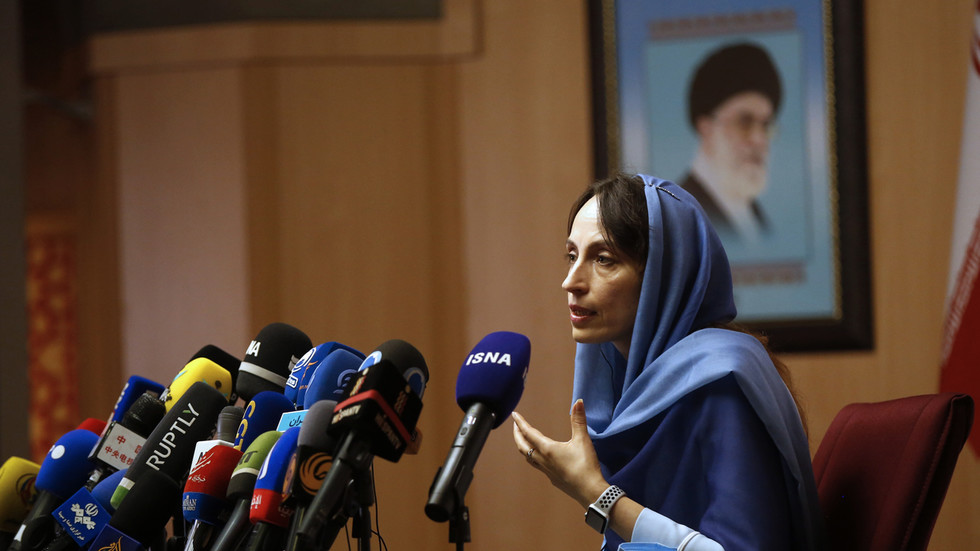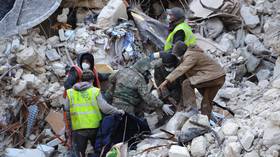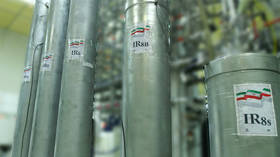
Embargo denies vital medical care to Iranians with a hereditary disease, said human rights officials

FILE PHOTO: The UN special rapporteur on the negative impact of the unilateral sanctions Alena Douhan speaks during her news conference in Tehran, Iran, May 18, 2022 © AP
Washington’s sanctions against Tehran and their enforcement in third countries clash with international law, the UN Human Rights Council noted on Tuesday, citing the findings of two special rapporteurs concerning Iranians suffering from thalassemia.
“The legality of the US unilateral sanctions against Iran is doubtful under international law, and so is the legality of their extraterritorial enforcement,” Alena Douhan and Obiora Okafor said in a statement. “Still companies outside the US feel obliged to comply to avoid facing legal or business repercussions.”
Douhan is the Special Rapporteur on the negative impact of the unilateral coercive measures on the enjoyment of human rights, while Okafor is an independent expert on human rights and international solidarity. They looked into the way the US embargo – imposed unilaterally in 2018, after Washington reneged on the 2015 nuclear deal – has affected Iranians suffering from thalassemia, a hereditary blood disorder.

Iran has a “particularly high number” of patients with thalassemia, who require specialized medication during blood transfusions. They are manufactured by the Swiss company Novartis, with components sourced from the French company Roquette Freres, but were “denied to Iran” due to “fear in medical, delivery and insurance business sectors,” the experts said.
“The humanitarian exemptions for medical goods in US sanctions regulations are complex and unclear,” said Douhan and Okafor, while Washington imposes high fines on companies selling medication to Iran, which leads to their “over-compliance.”
Even when a delivery is authorized, “producers, shippers, insurers, or banks” are reluctant to do business with Iran fearing “aggressive US sanctions enforcement and penalties,” they noted. This has led to “fear, pain and premature death” among the thalassemia patients.

Okafor and Douhan called on the US government to remove any obstacles to financial transactions for medical purposes, effectively implement humanitarian exemptions and not impose secondary sanctions on medical exports to Iran, while urging other UN members to abide by their human rights obligations.
The US, UK, France, Russia, China and Germany struck an agreement with Iran – known as the Joint Comprehensive Plan of Action (JCPOA) – in 2015, which had Tehran curtail its nuclear energy research in exchange for relief from UN sanctions. The US unilaterally left the JCPOA in 2018, imposing its own sanctions and insisting on punishing anyone, anywhere who failed to abide by them.




